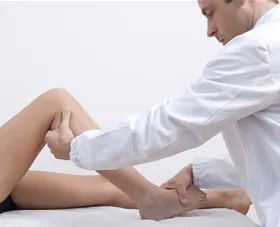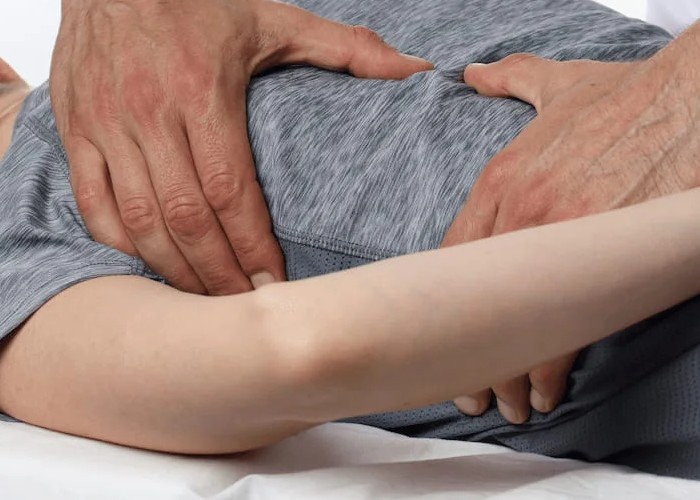Knee Pain
Clinical Signs and Symptoms
- Generalized pain
- Stiffness & restricted motion
- Instability
- Locking
- Buckling
- Swelling
- Grating, crackling or popping sounds
- Numbness and or tingling
- Weakness
Chiropractic / Applied Kinesiology Approach to Knee Pain
Surgery disrupts local nerve
pathways, and can reduce the knee’s ability to absorb shock.
The ensuing increased pressure can lead to premature
degeneration, chronic pain, and ongoing inflammation.
Additionally, after surgery, the body often adapts with
compensatory postures that can throw off pelvic balance.
This imbalance can lead to ongoing low back pain and other
mechanical problems.
Addressing knee pain is often as straightforward as restoring proper function
to the muscles that stabilize the joint. This may involve direct treatment of
the muscles themselves or indirect approaches, such as correcting related
neurological reflexes or meridian imbalances.

Dr. Morrison integrates clinical nutrition to accelerate healing and reduce
inflammation. When food sensitivities are part of the picture, personalized
dietary programs are offered. Nutritional supplementation is also provided
when clinically indicated.
A comprehensive chiropractic assessment includes evaluating the structural alignment of the foot, knee, hip, and lumbar spine. Adjustments are performed as needed to optimize biomechanics and support long-term joint
health. The ultimate goal is lasting pain relief and the prevention of future
injury.



